ACTIVITIES
Contact usDifferentiated Service Delivery Policy Landscape
Jul 19, 2024
HIV Policy Lab
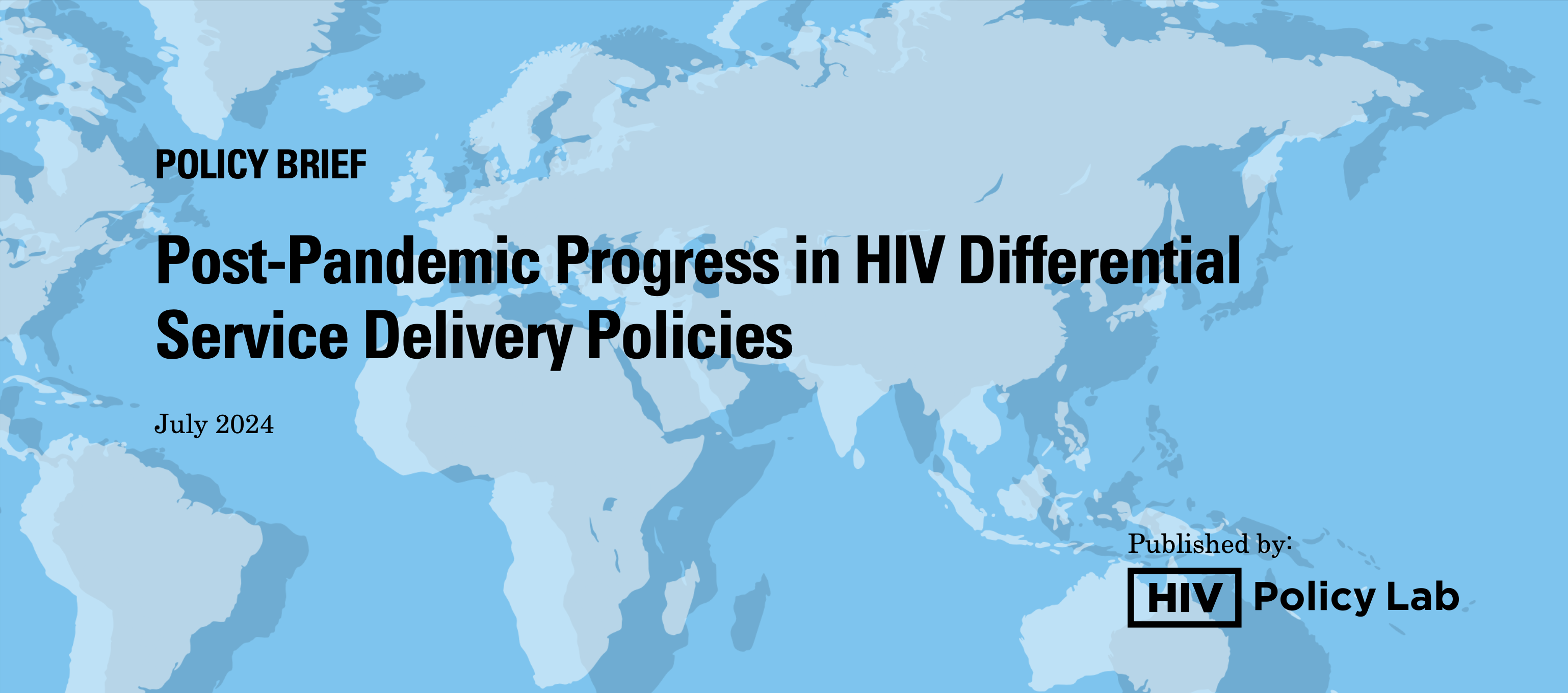
In recent years, many countries have adopted new laws and policies related to where, how frequently, and by whom HIV medicines can be distributed, in order to take evidence from pilots of differentiated HIV service delivery programs to scale. These policies can have an important impact beyond HIV for other diseases and pandemic response.
Read moreHIV Age of Access Policy Landscape
Jul 19, 2024
HIV Policy Lab, Center for Global Health Policy & Politics, SRHR Fund, SAT SRHR Africa Trust, Kelin, Hivos, Ayar EP, Center For Human Rights at the University of Pretoria, Global Network of Young People Living with HIV, APYIN

Sub-Saharan Africa remains disproportionately impacted, with HIV/AIDS being the leading cause of death among adolescents in sub-Saharan Africa. Globally, over a quarter of new HIV infections occur among young people and adolescents.
Read moreAdvanced HIV Disease Dashboard
Jul 19, 2024
HIV Policy Lab

The Advanced HIV Disease (AHD) Dashboard tracks national policy and guideline adoption of key clinical recommendations for preventing, diagnosing, and treating advanced HIV disease and related opportunistic infections across countries in sub-Saharan Africa.
Read moreGlobal HIV Policy Lab Report - Progress and the Peril: HIV and the Global Decriminalization of Same-Sex Sex
Nov 13, 2023
HIV Policy Lab, United National Development Programme (UNDP), Global Network of People Living with HIV (GNP+)
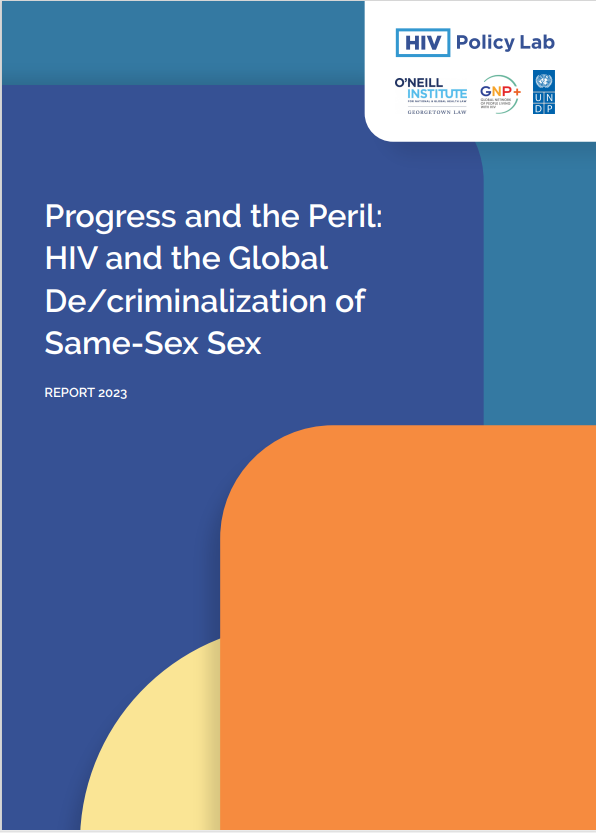
As of this year, two-thirds of the countries do not criminalize consensual same-sex sex - a clear reversal of trends from the start of the AIDS pandemic. The 2023 report on HIV and global trends in same-sex sex de/criminalization, produced in collaboration with UNDP and GNP+, shows more countries decriminalized same-sex sexuality in 2022 than in any of the past 25. While there is a strong global trend toward decriminalization, some countries are imposing harsher penalties on same-sex sexuality and deepening criminalization measures, making this an important moment for engagement where policy is out of step with global trends.
Read moreReleasing next week - Global HIV Policy Lab Report - Progress and the Peril: HIV and Global De/criminalization of Same-Sex Sex
Nov 8, 2023
HIV Policy Lab, United National Development Programme (UNDP), Global Network of People Living with HIV (GNP+)
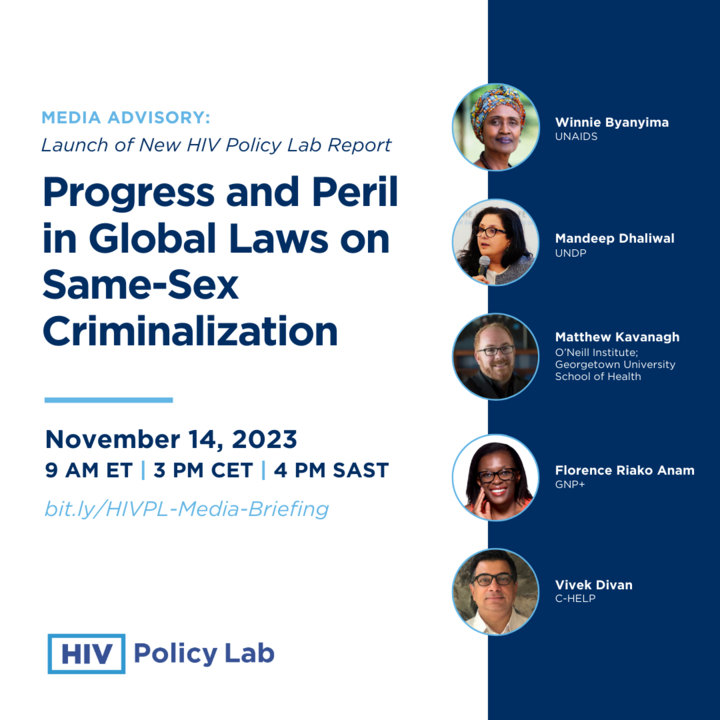
The HIV Policy Lab, in collaboration with the United Nations Development Programme (UNDP) and the Global Network of People Living with HIV (GNP+), is launching its report: “Progress and the Peril: HIV and Global De/criminalization of Same-Sex Sex” on Tuesday, Nov 14, 2023.
Register to join for the live-stream launch event at at 9am EST/3pm CET/4pm SAST [here] or a community forum on Wednesday, Nov 15, 2023 at 8am EST/2pm CET/3pm SAST [here]
Read moreReleasing next month - Advanced HIV Disease Dashboard
Nov 7, 2023
Releasing next month - Advanced HIV Disease Dashboard
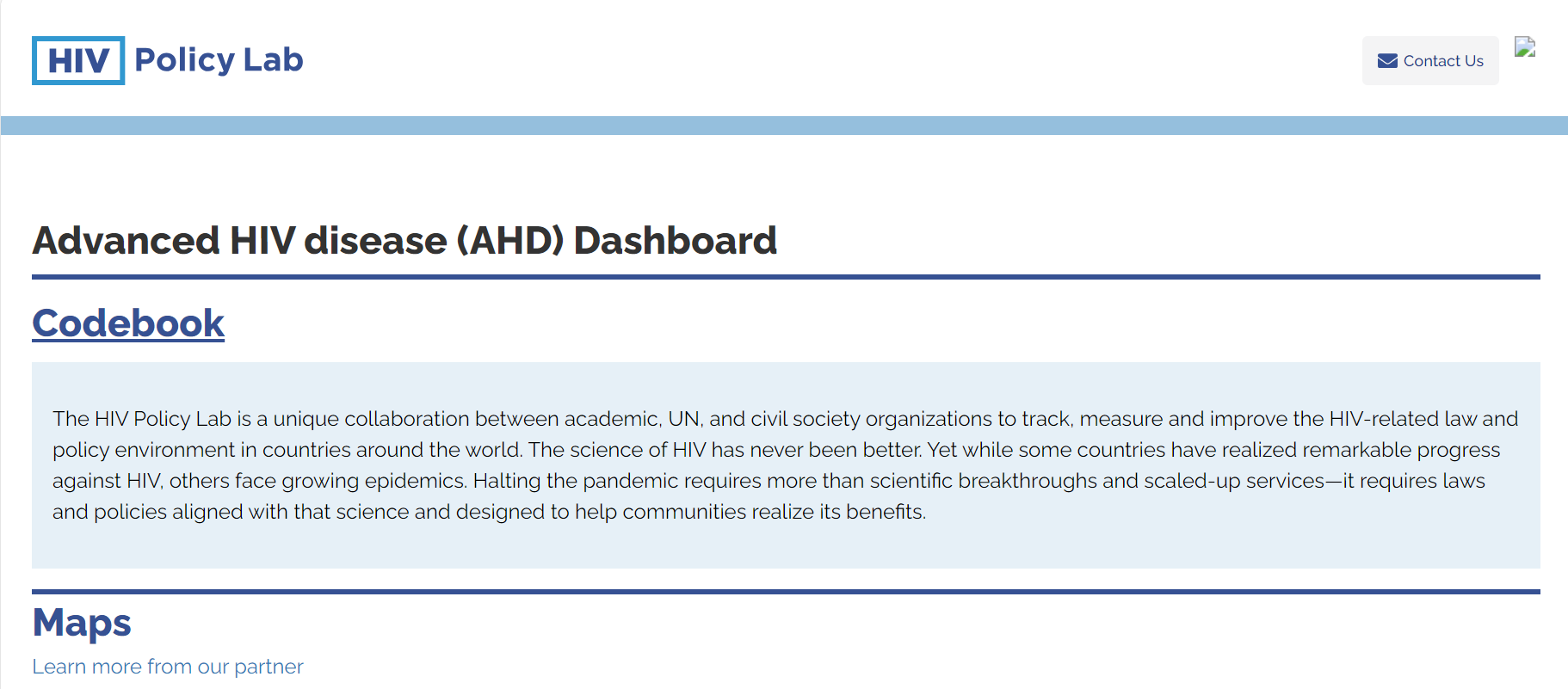
Cryptococcal Meningitis (CM) is the second leading cause of death among people living with HIV/AIDS, accounting for 19% of all HIV-related deaths. Yet, it remains underrecognized, undercounted, underdiagnosed, and undertreated. Hosted within the HIV Policy Lab ecosystem, the Advanced HIV Disease (AHD) dashboard will track and review the adoption of key clinical policies for preventing, diagnosing and treatment of CM across Sub-Saharan African countries, and their alignment with normative guidance.
Read moreActivities and Updates: HIV Language Compendium
Nov 6, 2023
HIV Policy Lab, Global Network of People Living with HIV (GNP+), Aidsfonds, and overseen by the Love Alliance.
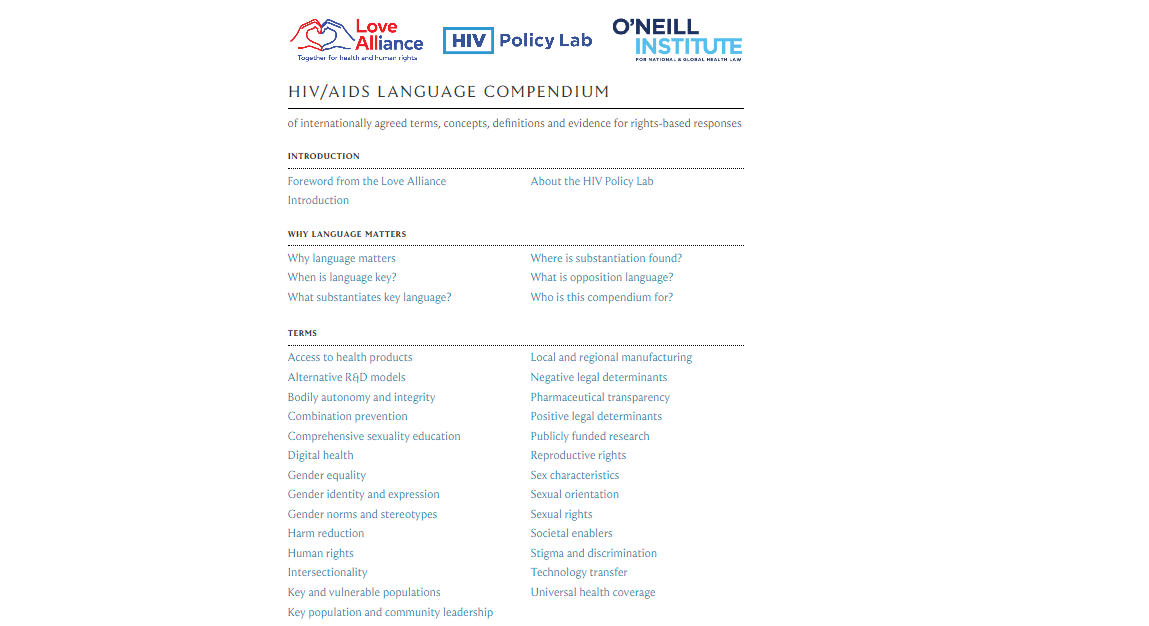
In September 2023, the United Nations (UN) convened a high-level meeting dedicated to universal health coverage. This meeting was viewed as an "historic opportunity" to adopt action-oriented commitments and "accelerate progress towards the achievement of universal health coverage by 2030." It was expected that Member States would adopt new commitments building upon the political declaration on universal health coverage previously agreed upon in 2019 and various other UN resolutions.
Read moreThe HIV Language Compendium
Sep 19, 2022
HIV Policy Lab, Global Network of People Living with HIV (GNP+), Aidsfonds, and overseen by the Love Alliance.
The HIV Language Compendium is a compilation of internationally agreed upon language that provides precedents for the use, proper interpretation, and significance of concepts and terms crucial for an evidence-based and rights-affirming response to HIV. By documenting key language in United Nations agreements and related texts, the Compendium is intended to be a resource for governments, global health actors, and civil society.
Read moreMigrant Access to HIV Services in the Russian Federation, Armenia, and Uzbekistan: Analyses by TB Europe Coalition (TBEC)
Jul 25, 2022
TB Europe Coalition, HIV Policy Lab, and the Regional Expert Group on Migration and Health
In these policy briefs, TB Europe Coalition (TBEC), the Regional Expert Group on Migration and Health in Eastern Europe and Central Asia (REG), and the HIV Policy Lab explore migrants’ access to HIV services in the Russian Federation, Armenia, and Uzbekistan, focusing on the migrants’ experience accessing care in receiving (i.e., destination) countries, including the law and policy barriers they encounter, as well as the national policy agenda in sending countries. These reviews and regional roundtable policy discussions hosted by TBEC and REG have informed a set of policy recommendations, including creating transborder agreements between sending and receiving countries to facilitate migrants’ access to HIV and TB treatment.
Read moreThe Present and the Future of the HIV Policy Landscape: KFF/HIV Policy Lab Webinar
Apr 5, 2022
On March 10, the HIV Policy Lab and Kaiser Family Foundation (KFF) held a virtual event sharing new analyses on the current state of HIV policies around the world and policy change opportunities and challenges on the horizon. The event shared findings from the HIV Policy Lab’s new annual Global HIV Policy Report as well as a new analysis by KFF using HIV Policy Lab data.
Read moreGlobal HIV Policy Report: Findings from the HIV Policy Lab
Mar 9, 2022
HIV Policy Lab Team

Despite rapid scientific advances the world failed to achieve the global HIV goals set for 2020 and is not on track to reach the goal to end AIDS as a public health threat by 2030. This can be explained, at least in part, by the significant gap that remains between science on the one hand, and law and policy on the other. The HIV Policy Lab’s annual report presents the state of HIV policy across 194 countries for key HIV-related laws and policies. With not one country in the world having fully aligned its laws and policies with those recommended, significant change is still needed.
Read moreNew Analysis by KFF Uses HIVPL Data to Analyze Policy Adoption in PEPFAR Countries
Feb 7, 2022
Alicia Carbaugh, Anna Rouw, Jennifer Kates
An analysis of HIVPL data by the Kaiser Family Foundation finds that PEPFAR countries have stronger policy alignment with international standards than other LMICs.
Read the analysis at the Kaiser Family Foundation site.
FAC Activist Workshop: Advocacy to Reduce AIDS Deaths
Dec 8, 2021
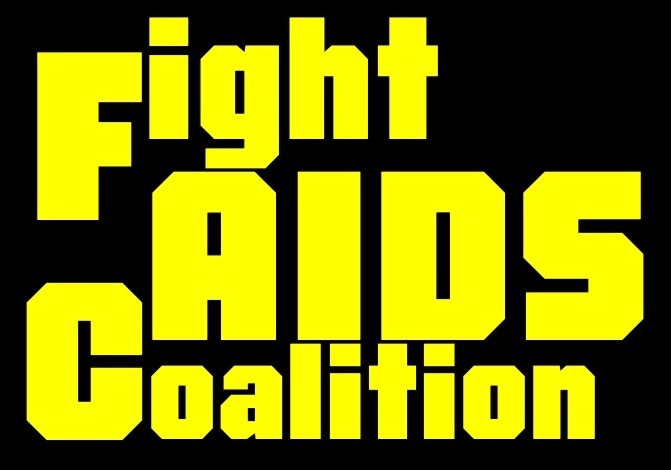
On 8 December 2021, the Fight AIDS Coalition (FAC) held a workshop on advocacy to reduce AIDS deaths. We have the tools to prevent AIDS deaths, but people continue to die of AIDS. We need to confront the policy gaps, lack of access to life-saving tools and services, and the invisibility around AIDS deaths. Specifically, we need to increase accountability and attention for the number 1 and 2 drivers of deaths among people living with HIV (PLHIV): tuberculosis and cryptococcal meningitis. The workshop was organized by the HIV Policy Lab team, GNP+, Health GAP, ITPC, MSF, TAC, and TAG.
Read moreFIGHTING AIDS: Open Letter calling for UNITAID to prioritize AIDS/AHD and TB
Dec 8, 2021

Together with the other members of the Fight AIDS Coalition, the HIVPL team organized an open letter calling on UNITAID to continue its support for introducing life-saving AIDS/AHD services and include short-course TB treatment in its 2022-2026 investment and strategic plans. The letter was signed by 76 organizations.
Read moreFIGHTING AIDS: Open Letter to WHO to measure and report on HIV co-infections
Nov 5, 2021
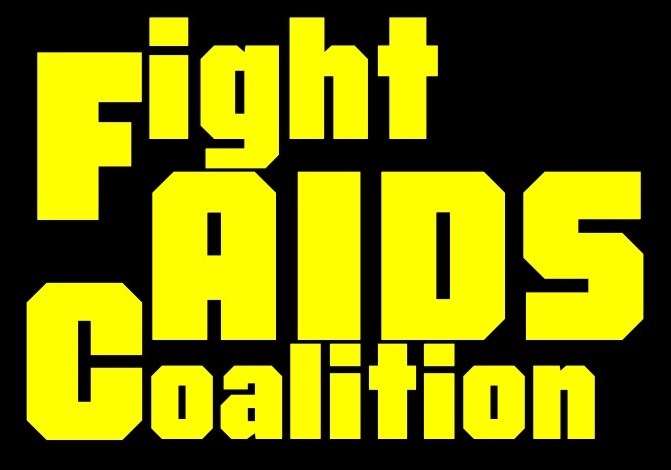
Together with the other members of the Fight AIDS Coalition, the HIVPL team organized an open letter to WHO emphasizing the need for greater action and attention towards AHD/AIDS-specific deaths and interventions to address the main drivers of HIV deaths: cryptococcal meningitis and tuberculosis. FAC calls for the WHO to endorse a roadmap from experts on how to reduce deaths due to cryptococcal meningitis, and fill the gaps in knowledge about the disease by measuring and reporting on cryptococcal meningitis incidence, treatment coverage, and deaths.
Read moreFIGHTING AIDS: Open Letter Urging PEPFAR to Address AHD/AIDS
Oct 6, 2021

The HIVPL team organized an open letter to PEPFAR, urging it to include reducing AIDS and AIDS deaths as an objective in its new PEPFAR Strategy: Vision 2025 and to include specific goals to address Advanced HIV Disease (AHD)/AIDS and the leading killers of PLHIV—cryptococcal meningitis and tuberculosis. The letter was signed by 45 HIV and global health organizations and experts.
Read moreThe U.N. has a plan to end AIDS by 2030. But Russia doesn’t like it.
Sep 14, 2021
Renu Singh & Mara Pillinger
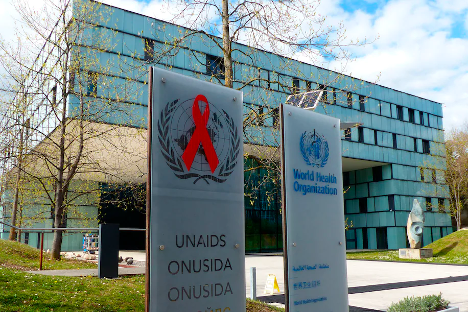
At a June UNGA meeting, Russia refused to support a consensus political declaration on ending the HIV/AIDS epidemic. What does this mean for the future of HIV/AIDS and international politics?
Read in the Washington Post
Una plataforma que permite monitorear la Declaración Política sobre VIH
Jun 16, 2021
Leandro Cahn, Director Ejecutivo de Fundación Huésped & Matthew M. Kavanagh, Director de Global Health Policy & Politics Initiative, O’Neill Institute for National & Global Health Law
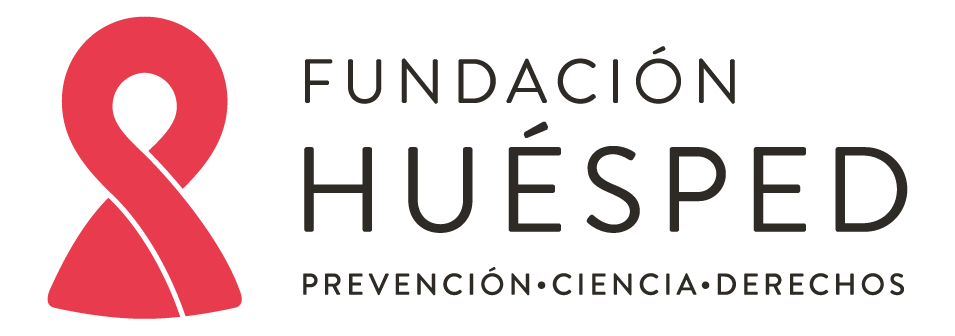
Our partners at Fundación Huésped in Argentina describe how they use the HIVPL to monitor whether countries are delivering on their policy commitments.
Read moreHIV Specialist: The State of HIV Around the World
Jun 15, 2021
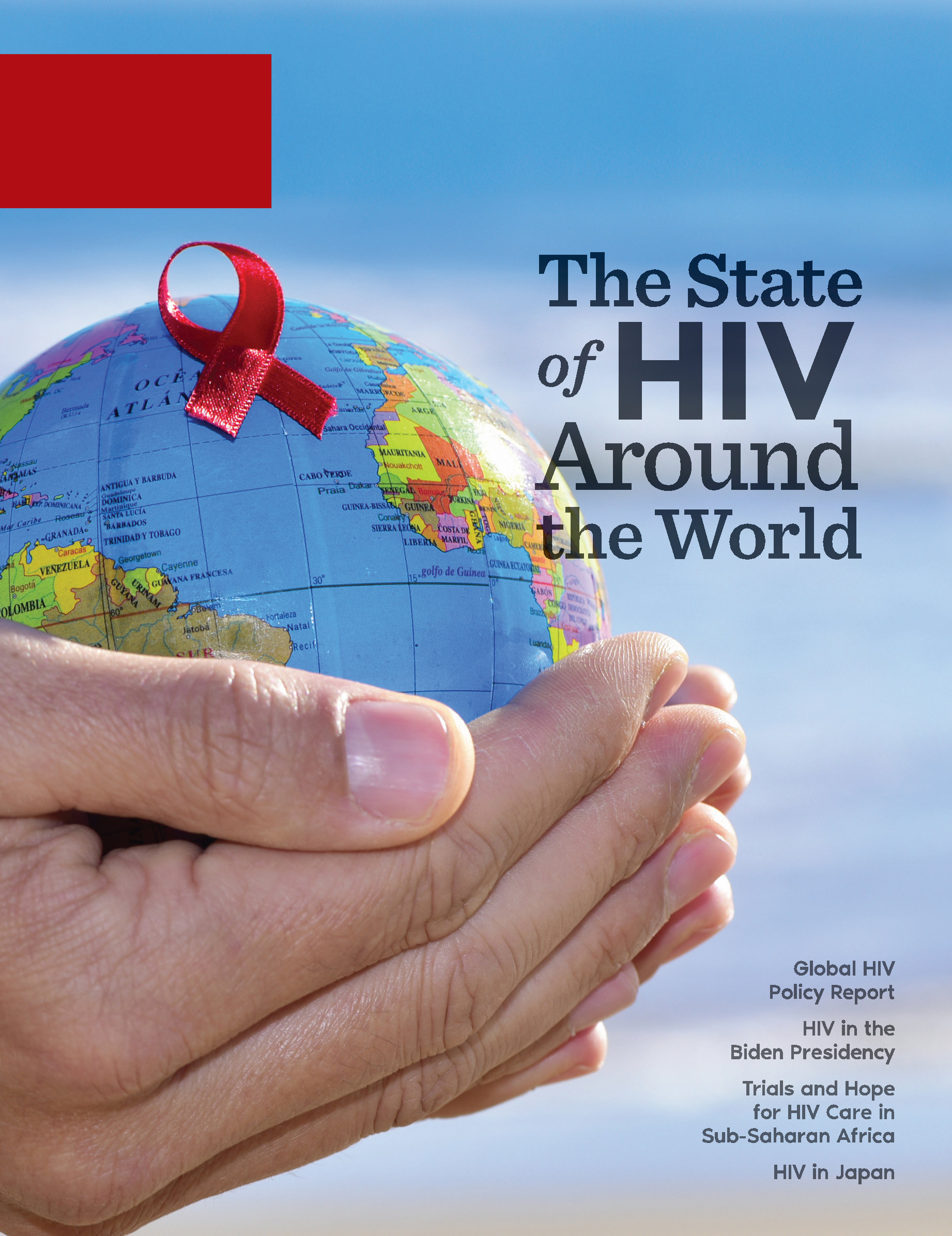
The American Academy of HIV Medicine featured the HIVPL’s 2020 Global HIV Policy Report in a special issue of its magazine.
Read moreData & Analysis on the 10-10-10 Targets
Jun 1, 2021
HIV Policy Lab Team

The Global AIDS Strategy 2021-2026 sets an ambitious new set of targets, the 10-10-10 targets, calling on countries to repeal punitive laws/policies that target key populations and to implement right-supportive laws/policies that combat stigma, discrimination, and gender-based violence.
These targets will not be achieved without transparency, evidence, and accountability—transparency around the laws/policies that countries have in place, evidence to show why policy change is necessary and beneficial, and advocacy to hold governments accountable for acting on the commitments they made at the 2021 UN High-Level Meeting on HIV/AIDS and achieving the 10-10-10 targets.
Read moreA video introduction to HIV Policy Lab
May 19, 2021
HIV Policy Lab Team
The science of HIV has never been better, but policy too often gets in the way of a robust HIV response. The HIV Policy Lab is a comprehensive database to monitor, track, and compare national HIV policies across countries. The HIV Policy Lab data and visualization tools examine whether science-based policies have been implemented at the national level in 194 countries. This video provides an overview of the HIV Policy Lab and features leaders in the fight against HIV discussing how it can be used.
Opinion: PEPFAR and the Global Fund must improve care for HIV-positive children
Jan 27, 2021
Maureen Milanga and Alexandra Volgina
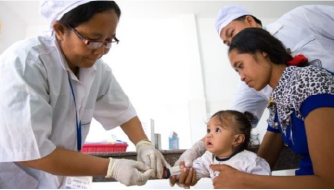
On World AIDS Day last month, a breakthrough was announced for children with HIV in low-income countries. The integrase inhibitor dolutegravir, an antiretroviral medicine recommended for first-line treatment, is being manufactured in a 10- milligram formulation that can be given easily to infants weighing less than 20 kilograms. It dissolves in liquid and tastes like strawberries, and the price negotiated with generic drug companies Viatris and Macleods Pharmaceuticals is competitive. Following this announcement, the Global Fund to Fight AIDS, Tuberculosis and Malaria; the United States President's Emergency Plan...
Read more2020 Global HIV Policy Report: Policy Barriers to HIV Progress
Nov 30, 2020
HIV Policy Lab Team
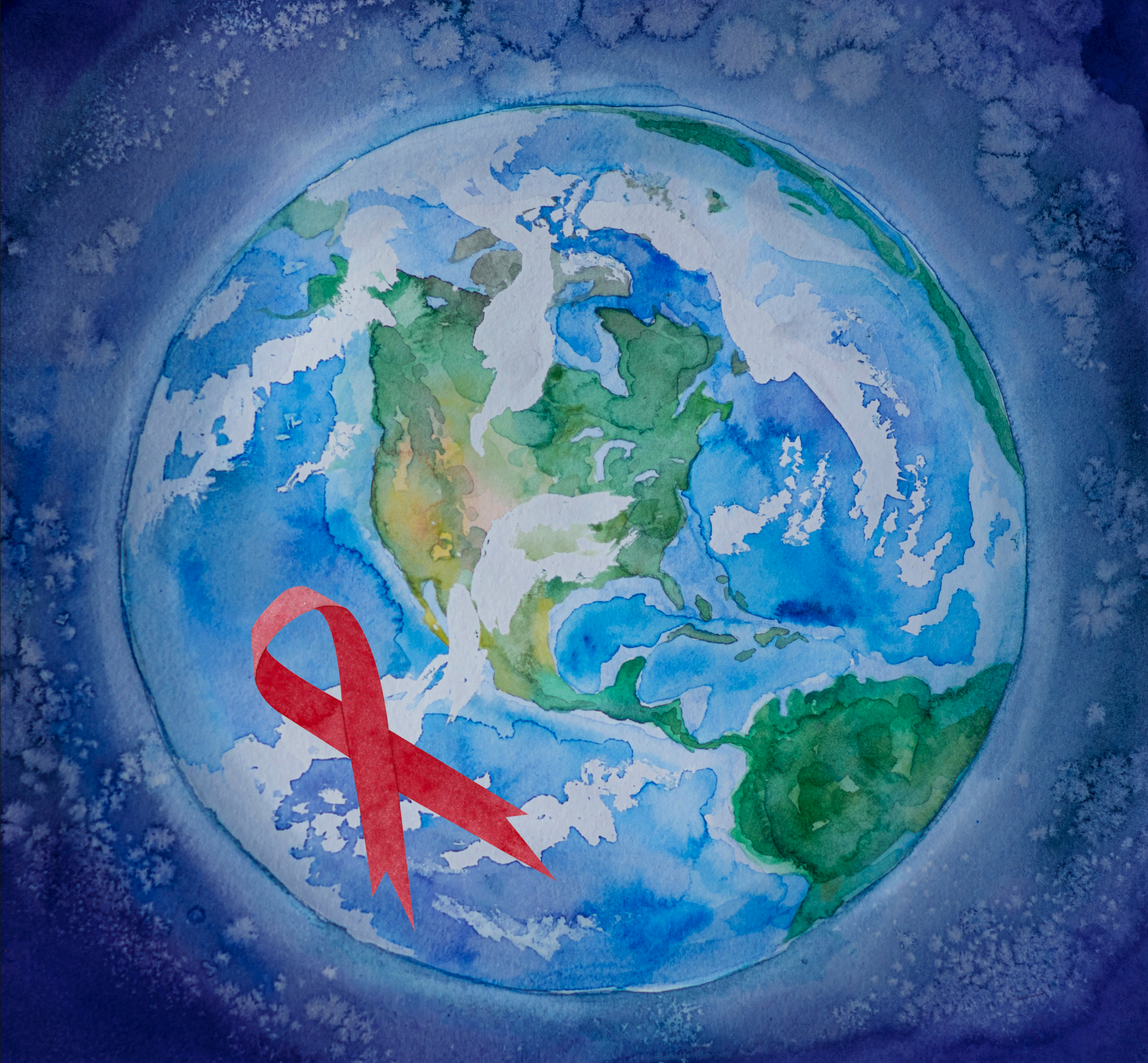
The state of the science around ending HIV has never been better, but slow translation of scientific advances into laws and policies is a major barrier to progress in the fight against HIV. Laws and policies drive who has access to the benefits of science, how people living with and affected by HIV are treated, how health systems are structured, and how officials engage with communities. This report presents the state of HIV policy in countries around the world in 2020. Drawing on data from the HIV Policy Lab, it tracks which countries have adopted 33 key HIV-related laws and policies recommended by UNAIDS and WHO and which have...
Read moreUnderstanding and comparing HIV-related law and policy environments: cross-national data and accountability for the global AIDS response
Sep 5, 2020
Matthew M Kavanagh 1, 2, Ellie Graeden 3, Mara Pillinger 4, Renu Singh 4, Stephanie Eaneff 3, Victoria Bendaud 5, Rico Gustav 6, and Taavi Erkkola 5
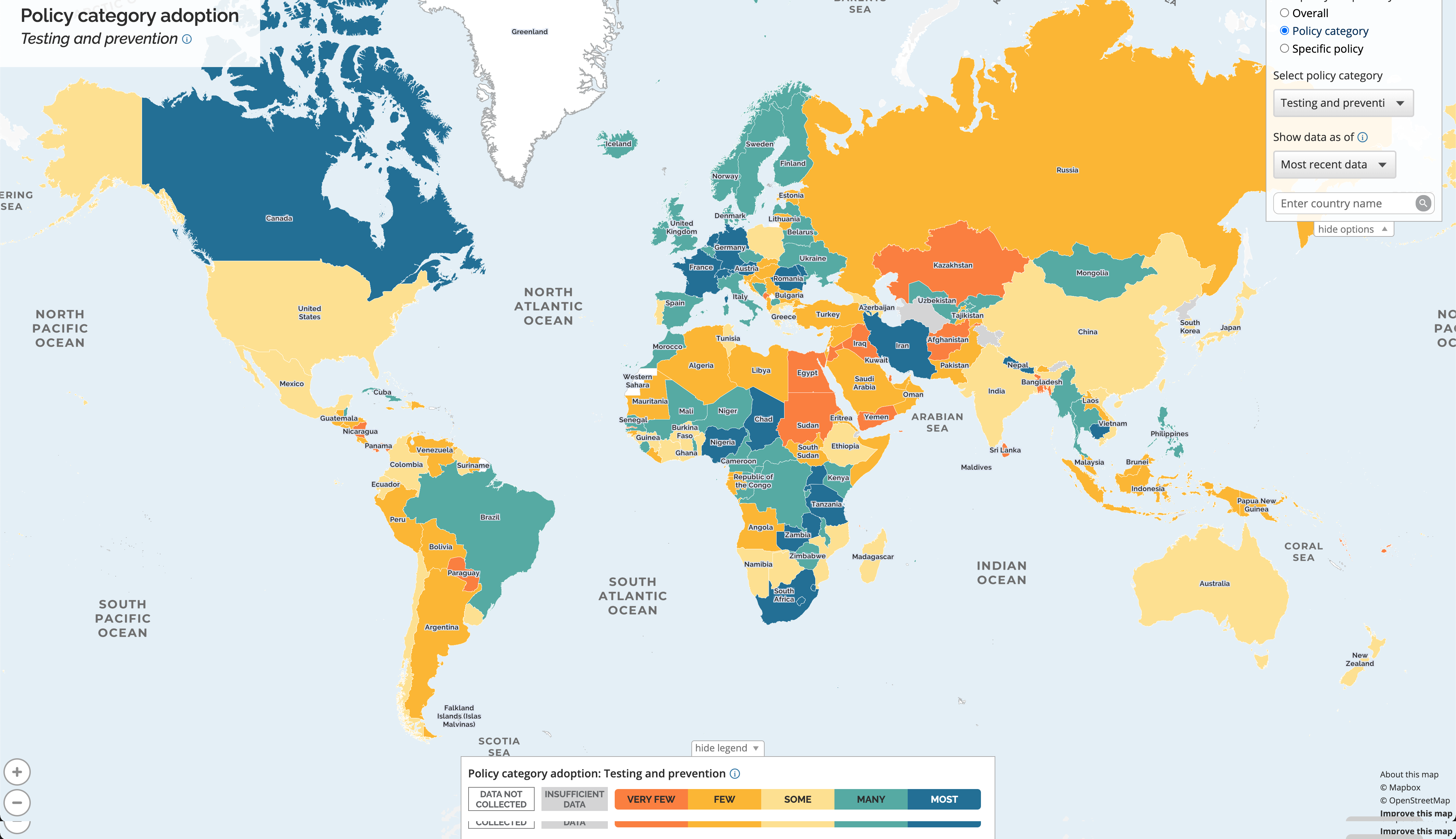
Law and policy differences help explain why, as HIV-related science has advanced swiftly, some countries have realised remarkable progress on AIDS while others see expanding epidemics. We describe the structure and findings of a new dataset and research platform, the HIV Policy Lab, which fills an important knowledge gap by measuring the HIV-related policy environment across 33 indicators and 194 countries over time, with online access and visualisation. Cross-national indicators can be critical tools in international governance-building social power to monitor state behaviour with the potential to change policy and improve domestic...
Read moreRecent Activities
2024-07-19
2024-07-19
2022-09-19
2021-06-01
2021-05-19
